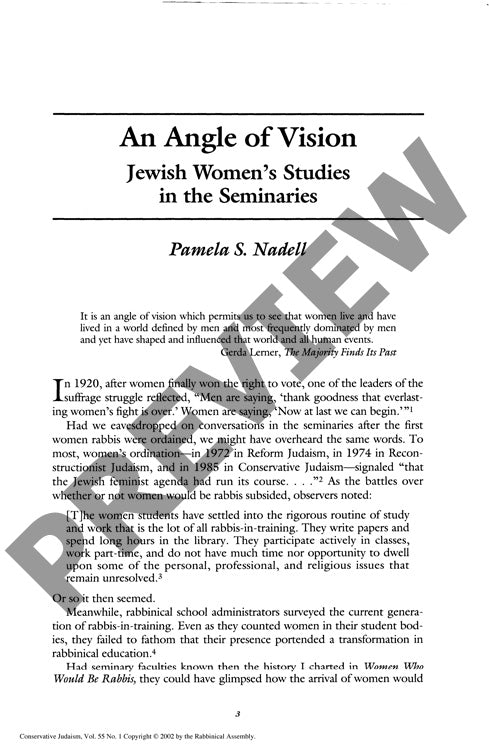An Angle of Vision Jewish Womens Studies
Couldn't load pickup availability
Jewish women's studies entered American rabbinical seminaries through determined advocacy rather than following naturally from women's ordination rights. From 1972 to 2000, passionate students and faculty members pushed to integrate feminist perspectives into traditional seminary curricula, transforming scattered course offerings into formal academic programs. Through historical analysis of institutional records, course catalogs, and interviews with key players - particularly the pioneering female students and faculty who championed these changes - this research traces how Jewish women's studies evolved across Reform, Conservative, and Reconstructionist institutions. The Reconstructionist Rabbinical College led the way, establishing the first formal program in 1988, which grew into Kolot: The Center for Jewish Women and Gender Studies by 1996. The Jewish Theological Seminary followed with an M.A. program in 1995, while Hebrew Union College-Jewish Institute of Religion developed varied offerings across its campuses throughout the 1990s. Despite these advances, Jewish women's studies remains largely confined to specialized programs rather than fully integrated throughout rabbinical education. This research illuminates both how feminist scholarship penetrates religious institutions and the persistent challenges of reshaping traditional educational frameworks to embrace the gender-inclusive perspectives vital for modern Jewish leadership.

More Information
-
Physical Description
-
Publication Information
Published 2002
ISBN
-
Publication Credits
Pamela Nadell

